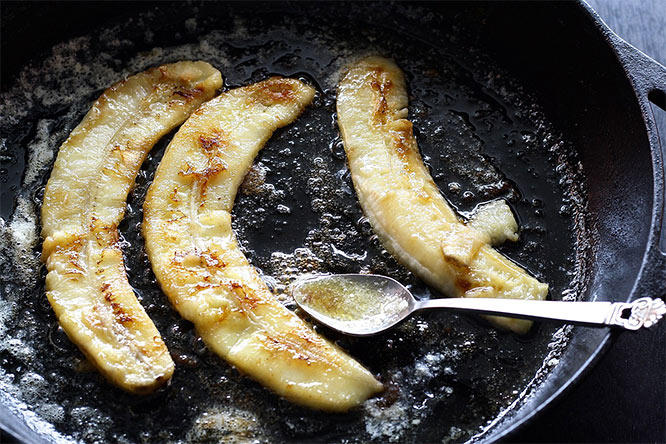
Many people are aware of their risks with their food and appliances in the age of information and health consciousness. Cookware is no exception. With many consumers preferring green and clean pans, the question stands: is cooking with cast-iron healthy?
Cookware Safety
Not all cookware is made alike; that being said, there are degrees of safe use and what isn’t. To understand what makes cast-iron safe for cooking, you need to look at the overall picture. Cookware comes in many shapes, forms, and materials. From stainless steel, aluminium to enamel-coated, it is not just the outside of your cookware that counts.
The finishings on your cookware also make it safe to use or not so safe. For example, it is well known that non-stick coatings such as Teflon coated pots and pans can emit toxic chemicals if used over extremely high heat, making it not as ideal for family meals.
Is Cast Iron Healthy?
Home cooks concerned with health shouldn’t just be concerned with the ingredients they use but how they cook their food. Cast iron is perhaps one of the healthier materials to cook your food with. For many people with metal sensitivities, to nickel, in particular, some pots and skillets might not be safe to cook with.
Cast-iron cookware comes made of pure cast-iron with some varieties of enameled cast-iron. They could be considered hypoallergenic and safe for anyone with a nickel allergy. There are a few exceptions to the rule as to how you treat your cast-iron cookware is what makes all the difference.
The Benefits
It is known that cast-iron is excellent for anyone with iron deficiency or anyone at risk of anaemia; women, small children, and pregnant women could benefit from added iron in their diets. Cast-iron cookware delivers a small added dose of iron to your meals. Cast iron pots can increase the iron content in your meals by a little.
Cast iron builds its non-stick coating over time as it is routinely seasoned and used. Meaning you need less oil to cook with. Most cast-iron skillets can be used on the stovetop as well as in the oven. Perfect for diets that require less oil.
Caring for Your Cast-Iron
Caring for your cast-iron is the best way to have the healthiest cooking experience. Any cast-iron enthusiast will know that seasoning your cast-iron is essential to retaining its quality and integrity as it ages with you. What you season your cast-iron with will have an impact on the health benefits.
As cast-iron can retain heat and withstands extreme temperatures, the oil you use should have a high smoke point. Using refined oils is not always the healthiest bet as they can begin to leach chemicals into your food as the heat breaks them down.
Here are some of the healthiest oils to use for seasoning your cast iron:
- Avocado – the high smoke point means this oil can withstand high temperatures. Avocado oil is great for seasoning your cast iron skillet if you switch between stovetop and oven use regularly.
- Flaxseed oil or Extra Virgin Olive Oil – These oils are excellent for seasoning your cookware. With a pretty high smoke point, these oils are perfect for stovetop cooking but temperatures surpassing 190 – 200 degrees C (375 – 400 degrees Fahrenheit) are not advised.
- Safflower oil – This great high heat resistant oil is another perfect oil to use. It is almost flavourless and won’t change the flavour of your food as it cooks.
What to Avoid When Cooking in Cast-Iron
Cooking acidic foods can cause the non-stick coating that builds up over time, through use and seasoning, to break down. Acidic foods are any meals that have tomatoes or citrus like lemon juice in them. It is not a hard and fast rule that you cannot cook acidic foods in your cast iron.
As long as you are not cooking tomato sauce-based meals in your skillets for hours at a time or leaving it to sit in the pot, it will not damage the cookware. However, leaving acidic food for a little too long in an especially new pot might leave a slightly metallic taste in the food. A well-seasoned pan is more likely to withstand acidic meals.
On the Surface
Cast iron cookware is made from pure metal, with continued seasoning and uses the cooking surface becomes more non-stick over time. Cast iron is non-reactive and doesn’t leach toxic chemicals into your food, making this one of the healthiest pots to use.
Non-stick coatings added to some steel cookware brands often leach chemicals into your foods once they reach a specific temperature. Ceramic or enamel-coated cast-iron is a much healthier option. Both are non-toxic and can be used in both the oven and on the stovetop.
Made to Last
Cast-iron was made to last; it stands the test of time and can be passed on for generations to come. The secret to its success is its “less is more” approach. With cast iron, you can cook faster, safer, and healthier meals.
Author Bio
Vanessa Davis is a housewife and a mother of two. While watching out for the little ones, she enjoys blogging in her free time. Vanessa’s favourite topic is healthy recipes and wellness cause she intends to keep her family as healthy as possible.
